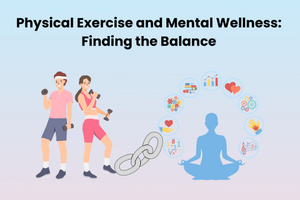Almost every Hollywood depiction of therapy shows an elderly-looking man sitting in a chair across from his patient, a notepad in hand.
“And how did it make you feel?” he asks while adjusting his glasses for effect.
Those who regularly attend therapy sessions know that’s not how it works. With the emphasis on “regular”, therapy has changed how people live their lives and helped them unlearn toxic behavior.
Call it the dismantling of problematic patterns if you must. Whatever your thoughts on therapy, one undeniable fact is that it serves your mental health and well-being.
Many people swear that therapy is the best form of self-care. While the aim is always the same, the pathway to healing can take different routes.
Below, we’ll explain how different types of therapy can be food for the soul and how they can address diverse challenges.
(more…)
Mental Health Research, Psychological Science / 05.10.2024
Why Credentials Matter in Mental Health Counseling
As mental health awareness grows, more people are seeking professional support for emotional, psychological, and behavioral challenges. However, finding the right counselor involves more than just scheduling an appointment—it’s essential to understand the credentials of the professional you are trusting with your care. Mental health counseling credentials provide insight into a counselor's education, training, and qualifications. These credentials contribute to clients receiving the best care possible, establishing trust and confidence in the services provided.
The Importance of Mental Health Counseling Credentials
Credentials serve as a clear indication that a mental health professional has undergone the necessary training and education to guide clients through their mental health challenges. For clients, knowing that a counselor holds the appropriate credentials is a key factor in building trust. It reassures them that the counselor is qualified and capable of handling sensitive mental health issues.
Moreover, licensed professionals adhere to a strict code of ethics, making sure that they maintain confidentiality, obtain informed consent, and provide competent care. These ethical standards help protect clients and hold the counselor accountable in their practice. Credentials reflect a commitment to professionalism, and clients should always consider them when choosing a mental health professional.
When searching for a counselor, you might come across different credentials, such as LCSW (Licensed Clinical Social Worker) and LMHC (Licensed Mental Health Counselor). Understanding the differences between these qualifications is important. For example, when comparing LCSW vs LMHC, it's helpful to know that while both are licensed and qualified counselors, their training and areas of expertise may differ. This distinction can influence the type of care you receive based on your specific needs. Ultimately, choosing the right credentialed professional can help you find the best possible support during your mental health journey.
(more…)
 Art therapy can be described as a subcategory of psychotherapy in which art-related exercises are used as vehicles of expression. It harnesses the processes of the artistic mind to assist people with their emotional, psychological, and sometimes physical difficulties.
This type of creative art and artistic expression, which takes place under the guidance of an art therapist, is based on the idea that art and creativity contribute to psychological health and facilitate nonverbal communication. What's art therapy, and how can it help you boost your overall lifestyle? Read on to learn how art therapy can be helpful, including its effect on mental health issues, mood modulation, and health overall.
(more…)
Art therapy can be described as a subcategory of psychotherapy in which art-related exercises are used as vehicles of expression. It harnesses the processes of the artistic mind to assist people with their emotional, psychological, and sometimes physical difficulties.
This type of creative art and artistic expression, which takes place under the guidance of an art therapist, is based on the idea that art and creativity contribute to psychological health and facilitate nonverbal communication. What's art therapy, and how can it help you boost your overall lifestyle? Read on to learn how art therapy can be helpful, including its effect on mental health issues, mood modulation, and health overall.
(more…)
Accidents & Violence, Legal-Malpractice, Mental Health Research / 11.09.2024
How to Handle Wrongful Death in a Car Accident
 Losing a loved one is one of life’s most profound sorrows, and when that loss is due to a wrongful death in a car accident, the pain can feel unbearable. In the wake of such a tragedy, emotions run high, and the path forward may seem overwhelming. You may be grappling with feelings of anger, confusion, and heartbreak, all while trying to navigate the complex legal landscape that follows a fatal accident.
In these difficult moments, it’s crucial to remember that you are not alone. Many have faced similar heart-wrenching situations, and there are steps you can take to honor your loved one’s memory while seeking justice. Depending on the nature of the accident, services like Biohazard Cleaning in Knoxville may be necessary, ensuring the scene is properly handled.
This blog post aims to provide compassionate guidance on how to handle the aftermath of a wrongful death in a car accident. From understanding your legal rights to finding the support you need, we’ll explore the resources available to help you through this challenging time. Together, let’s take a step toward healing and justice for those we have lost too soon.
Losing a loved one is one of life’s most profound sorrows, and when that loss is due to a wrongful death in a car accident, the pain can feel unbearable. In the wake of such a tragedy, emotions run high, and the path forward may seem overwhelming. You may be grappling with feelings of anger, confusion, and heartbreak, all while trying to navigate the complex legal landscape that follows a fatal accident.
In these difficult moments, it’s crucial to remember that you are not alone. Many have faced similar heart-wrenching situations, and there are steps you can take to honor your loved one’s memory while seeking justice. Depending on the nature of the accident, services like Biohazard Cleaning in Knoxville may be necessary, ensuring the scene is properly handled.
This blog post aims to provide compassionate guidance on how to handle the aftermath of a wrongful death in a car accident. From understanding your legal rights to finding the support you need, we’ll explore the resources available to help you through this challenging time. Together, let’s take a step toward healing and justice for those we have lost too soon.
 People think that men are strong in every aspect but not many know that men too can suffer from emotional challenges. The idea that they are the stronger sex isn’t absolute considering that men suffer from depression, anxiety, panic attacks, and other conditions affecting their psychological wellness.
Suffering from these conditions doesn’t diminish their worth. It only humanizes a male individual and helps him realize that they too need help and guidance in making the right choices and acknowledging their situation. The guide below should give any man a good starting point for coping with the emotional pressures that surround him.
(more…)
People think that men are strong in every aspect but not many know that men too can suffer from emotional challenges. The idea that they are the stronger sex isn’t absolute considering that men suffer from depression, anxiety, panic attacks, and other conditions affecting their psychological wellness.
Suffering from these conditions doesn’t diminish their worth. It only humanizes a male individual and helps him realize that they too need help and guidance in making the right choices and acknowledging their situation. The guide below should give any man a good starting point for coping with the emotional pressures that surround him.
(more…)
Mental Health Research / 08.08.2024
Can Online Psychiatry Truly Replace In-Person Therapy? Exploring the Key Differences
Online psychiatry has become an increasingly popular option for mental health care, mainly due to its convenience and accessibility. With many studies showing that online therapy can be as effective as in-person sessions, it's no wonder that more people are considering this alternative. Virtual therapy removes geographical barriers, making it easier to access professional help regardless of your location.
In contrast, in-person therapy offers a face-to-face connection that some individuals find essential. The physical presence of a therapist can encourage a stronger bond and a sense of comfort for many. Yet, with advancements in technology, Reimagine Psychiatry services are bridging the gap by providing expert online psychiatric care that's both reliable and covered by insurance.
Ultimately, the choice between online and in-person therapy hinges on your personal needs and preferences. If convenience and flexibility are your priorities, online psychiatry can be a viable and effective option. On the other hand, if you value direct human interaction, traditional in-office visits might suit you better.
(more…)
Dermatology, Mental Health Research / 26.07.2024
The Psychological Benefits of Effective Hair Loss Treatments
Hair loss can have profound psychological effects, impacting self-esteem and overall well-being. However, advancements in hair loss treatments, such as Minoxidil, offer hope by not only addressing physical symptoms but also improving mental health outcomes. Understanding the psychological benefits of these treatments is crucial for individuals seeking to regain confidence and emotional balance.
Addressing the Emotional Impact of Hair Loss
Hair loss is more than a cosmetic concern; it can significantly affect mental health. Many individuals experience feelings of embarrassment, anxiety, and reduced self-confidence due to changes in their appearance. Effective hair loss treatments play a pivotal role in alleviating these psychological burdens, fostering a positive outlook and enhancing quality of life.How Minoxidil Works
Minoxidil, a topical medication approved by the FDA for hair loss treatment, stimulates hair follicles' growth phase and increases hair density. It promotes blood flow to the scalp, revitalizing dormant follicles and encouraging new hair growth. Minoxidil hair treatment offers a proactive approach that not only addresses thinning hair but also restores confidence in one's appearance. (more…)
Mental Health Research / 25.07.2024
The Importance of Mental Health Support and Finding Someone To Talk To
Editor's note: This piece discusses mental health issues. If you have experienced suicidal thoughts or have lost someone to suicide and want to seek help, you can contact the Crisis Text Line by texting "START" to 741-741 or call the Suicide Prevention Lifeline at 800-273-8255.
As life becomes increasingly complex and challenging, acknowledging and supporting mental health is crucial. Mental health influences how we think, feel, and behave in daily life, and it affects our ability to handle stress, relate to others, and make decisions. In our fast-paced world, finding the right support networks and resources can be daunting yet essential. Just as we nourish our bodies for physical health, our minds also require care and attention. Keep reading to discover why mental health is so important and how to find the support you need.
(more…)
Mental Health Research / 22.07.2024
Effective Strategies for Managing Mental Health in Everyday Life
Key Takeaways:
- Simple daily practices can significantly improve mental health.
- Mindfulness, proper nutrition, and social connections are crucial.
- Professional help is valuable and should not be stigmatized.
- The Importance of Mental Health
- Practicing Mindfulness
- Nutrition and Mental Health
- The Role of Exercise
- Building Strong Social Connections
- Seeking Professional Help
- Creating a Balanced Daily Routine
- Final Thoughts
Exercise - Fitness, Mental Health Research / 11.07.2024
Physical Exercise and Mental Wellness: Finding the Balance
The mental health of an individual relates to emotional, psychological, and social well-being and it has to do with how well the person can manage stress, interact with others, and make decisions. Because mental health is a dynamic state, many variables can cause it to alter over time. The connection between physical activity and mental wellness is becoming more and more prominent in society as it is difficult to keep a healthy balance between physical activity and mental health in the busy world. This blog delves into the complex connection between mental health and physical fitness, emphasising the significance of a healthy balance between both. It also explores the value of the Mental Health Course in comprehending and resolving Mental Health Issues in the framework of a comprehensive strategy.
Table Of Contents
- The Mind-Body Connection
- Stress Reduction and Cortisol Regulation
- Improved Sleep Patterns
- Enhanced Cognitive Function and Memory
- Social Interaction and Community Engagement
- The Role of Mental Health Courses
- Creating a Holistic Wellness Plan
- Individualized Approaches to Mental Wellness
- Conclusion
Exercise - Fitness, Mental Health Research / 10.07.2024
A Senior’s Guide to Getting Started with Meditation
Meditation, an ancient practice, has become more popular in recent years, largely due to its myriad health benefits.
For seniors, meditation holds significant value. According to the Cleveland Clinic, it provides a natural method to manage stress, enhance mental clarity, and improve overall well-being. The National Institute on Aging emphasizes that as we age, maintaining both physical and mental health becomes increasingly crucial. Meditation serves as a simple yet effective tool to support these goals.
WebMD reports that meditation can help seniors sleep better. This practice can also help deal with symptoms associated with depression.
If you're a senior looking to get started with meditation, here are a few expert tips to help you out.
 Meditation, as explained by Mayo Clinic, has been shown to reduce stress, lower blood pressure, and improve sleep quality. For seniors, these benefits are particularly significant as they can help manage chronic conditions and promote a sense of calm and relaxation.
Regular meditation practice can also enhance focus and cognitive function, which can be beneficial in maintaining mental sharpness as one ages. Furthermore, meditation promotes inner peace and enhances emotional health, thereby contributing to an improved overall quality of life.
(more…)
Meditation, as explained by Mayo Clinic, has been shown to reduce stress, lower blood pressure, and improve sleep quality. For seniors, these benefits are particularly significant as they can help manage chronic conditions and promote a sense of calm and relaxation.
Regular meditation practice can also enhance focus and cognitive function, which can be beneficial in maintaining mental sharpness as one ages. Furthermore, meditation promotes inner peace and enhances emotional health, thereby contributing to an improved overall quality of life.
(more…)
Understanding the Benefits of Meditation
 Meditation, as explained by Mayo Clinic, has been shown to reduce stress, lower blood pressure, and improve sleep quality. For seniors, these benefits are particularly significant as they can help manage chronic conditions and promote a sense of calm and relaxation.
Regular meditation practice can also enhance focus and cognitive function, which can be beneficial in maintaining mental sharpness as one ages. Furthermore, meditation promotes inner peace and enhances emotional health, thereby contributing to an improved overall quality of life.
(more…)
Meditation, as explained by Mayo Clinic, has been shown to reduce stress, lower blood pressure, and improve sleep quality. For seniors, these benefits are particularly significant as they can help manage chronic conditions and promote a sense of calm and relaxation.
Regular meditation practice can also enhance focus and cognitive function, which can be beneficial in maintaining mental sharpness as one ages. Furthermore, meditation promotes inner peace and enhances emotional health, thereby contributing to an improved overall quality of life.
(more…)
Education, Mental Health Research / 04.07.2024
Studying with Sanity: Nine Mental Health Tips for College Students
College life is a major milestone, filled with opportunities for personal and professional growth. However, the stakes are high for students pursuing health sciences. Fields like medicine, nursing, and other health-related professions demand rigorous study, long hours, and a deep emotional commitment. The pressure to excel can lead to stress, anxiety, and other mental health challenges. Hence, it is crucial to find effective ways to
maintain mental health to thrive academically and personally.
Here are nine tips to help you keep your sanity while studying.
(more…)
In the 21st century, mental health is very important. Moreover, it is common to suffer from mental health issues such as depression, anxiety, etc.
Psychotherapy may be needed to improve mental health. If you want more details, check out the guide below.
 It is also known as talk therapy, which gives a structured framework to patients that helps them cope with the situation.
There could be anything related to mental illness that requires talk therapy, such as depression, anxiety, trauma, etc.
Its core is the bond between you and your therapist or therapeutic relationship.
The Psychotherapist and you both will work together to fix your mental illness, stress, depression, etc.
Anyone can take part in these psychotherapy sessions, either individually or with your partner or family.
Talk therapy sessions are typically 30-60 minutes. It is important to be open and honest during these sessions.
It is also known as talk therapy, which gives a structured framework to patients that helps them cope with the situation.
There could be anything related to mental illness that requires talk therapy, such as depression, anxiety, trauma, etc.
Its core is the bond between you and your therapist or therapeutic relationship.
The Psychotherapist and you both will work together to fix your mental illness, stress, depression, etc.
Anyone can take part in these psychotherapy sessions, either individually or with your partner or family.
Talk therapy sessions are typically 30-60 minutes. It is important to be open and honest during these sessions.
How Does Psychotherapy Work?
 It is also known as talk therapy, which gives a structured framework to patients that helps them cope with the situation.
There could be anything related to mental illness that requires talk therapy, such as depression, anxiety, trauma, etc.
Its core is the bond between you and your therapist or therapeutic relationship.
The Psychotherapist and you both will work together to fix your mental illness, stress, depression, etc.
Anyone can take part in these psychotherapy sessions, either individually or with your partner or family.
Talk therapy sessions are typically 30-60 minutes. It is important to be open and honest during these sessions.
It is also known as talk therapy, which gives a structured framework to patients that helps them cope with the situation.
There could be anything related to mental illness that requires talk therapy, such as depression, anxiety, trauma, etc.
Its core is the bond between you and your therapist or therapeutic relationship.
The Psychotherapist and you both will work together to fix your mental illness, stress, depression, etc.
Anyone can take part in these psychotherapy sessions, either individually or with your partner or family.
Talk therapy sessions are typically 30-60 minutes. It is important to be open and honest during these sessions.
When You Should Seek Therapy?
There are many signs that can help you recognize, and one of the most common signs is a sense of feeling that you suddenly start feeling stress.- Do not act or think aggressively about harming anyone, including yourself.
- Start drinking alcohol or taking drugs.
- Suddenly, I start feeling sad or lonely.
- Unable to think properly or focus on something.
- Always feel anxious. (more…)
Mental Health Research / 20.06.2024
Guide to Neurofeedback Therapy
The pandemic may be over, but its effects linger. According to a paper on the psychological impact of COVID-19 on children and adults in the United Arab Emirates, 71% of the UAE general population have generalized anxiety disorder. Younger people and females register the highest levels of anxiety, and teachers also report a higher incidence of emotional problems in children.
Mental health awareness and solutions are more crucial than ever in the face of this increased risk for anxiety. Fortunately, you and the people you care about have access to interventions like neurofeedback in Dubai to address various mental health conditions.
What Is Neurofeedback Therapy?
Neurofeedback therapy is a biofeedback technique that monitors brain waves and provides real-time feedback about those brainwaves to the brain. The brain can learn to self-regulate its functions by becoming aware of its activity. Through consistent brain training, the brain can instinctively prevent, manage, or control undesirable brain wave patterns. Consequently, it can be more effective at curbing the negative behavior, mental state or physiological symptoms associated with unwelcome brain activity. (more…)
Mental Health Research / 11.06.2024
Personalizing Mental Health Interventions: Choosing the Right Treatment Strategy
 Mental health is a deeply personal journey, and finding the right treatment strategy can significantly affect one's quality of life. With a range of mental health conditions affecting millions globally, it's crucial to understand that there's no one-size-fits-all solution. This article explores how to personalize mental health interventions, ensuring that individuals can choose the most effective strategies for their unique situations.
Understanding Mental Health Conditions and Their Complexities
Mental health issues range from common disorders like anxiety and depression to more complex conditions such as bipolar disorder and schizophrenia. Each condition affects individuals differently, making personalized treatment not just beneficial but necessary. The effectiveness of any mental health treatment largely depends on its alignment with the specific symptoms and circumstances of the individual. Therefore, understanding the nuances of one's mental health condition is the first step toward effective treatment.
(more…)
Mental health is a deeply personal journey, and finding the right treatment strategy can significantly affect one's quality of life. With a range of mental health conditions affecting millions globally, it's crucial to understand that there's no one-size-fits-all solution. This article explores how to personalize mental health interventions, ensuring that individuals can choose the most effective strategies for their unique situations.
Understanding Mental Health Conditions and Their Complexities
Mental health issues range from common disorders like anxiety and depression to more complex conditions such as bipolar disorder and schizophrenia. Each condition affects individuals differently, making personalized treatment not just beneficial but necessary. The effectiveness of any mental health treatment largely depends on its alignment with the specific symptoms and circumstances of the individual. Therefore, understanding the nuances of one's mental health condition is the first step toward effective treatment.
(more…)
Health Care Workers, Mental Health Research / 10.06.2024
How to handle stressed situations: A guide for Social Workers
Social work demands emotional resilience and dedication, since it often involves dealing with complex and challenging situations, ranging from supporting individuals in crisis to navigating the intricacies of social systems and policies. This constant exposure to stress can take a toll on a social worker.
Therefore, this guide covers various practical strategies for stress management to help social workers continue to perform their vital roles while safeguarding their well-being.
 Stress in the workplace is the body's response to the demands and pressures encountered in professional situations. It can manifest as acute stress, which is short-term and often related to specific events, or chronic stress, which persists over a long period due to ongoing challenges.
Common sources of stress for social workers may include high caseloads, administrative burdens, exposure to traumatic situations, and the emotional demands of supporting clients. Signs of stress can vary. You may have physical indicators like fatigue, headaches, and muscle tension. On the other hand, you may also have emotional and psychological signs like anxiety, irritability, and feelings of helplessness.
(more…)
Stress in the workplace is the body's response to the demands and pressures encountered in professional situations. It can manifest as acute stress, which is short-term and often related to specific events, or chronic stress, which persists over a long period due to ongoing challenges.
Common sources of stress for social workers may include high caseloads, administrative burdens, exposure to traumatic situations, and the emotional demands of supporting clients. Signs of stress can vary. You may have physical indicators like fatigue, headaches, and muscle tension. On the other hand, you may also have emotional and psychological signs like anxiety, irritability, and feelings of helplessness.
(more…)
Stress in Social Work and Its Impact
 Stress in the workplace is the body's response to the demands and pressures encountered in professional situations. It can manifest as acute stress, which is short-term and often related to specific events, or chronic stress, which persists over a long period due to ongoing challenges.
Common sources of stress for social workers may include high caseloads, administrative burdens, exposure to traumatic situations, and the emotional demands of supporting clients. Signs of stress can vary. You may have physical indicators like fatigue, headaches, and muscle tension. On the other hand, you may also have emotional and psychological signs like anxiety, irritability, and feelings of helplessness.
(more…)
Stress in the workplace is the body's response to the demands and pressures encountered in professional situations. It can manifest as acute stress, which is short-term and often related to specific events, or chronic stress, which persists over a long period due to ongoing challenges.
Common sources of stress for social workers may include high caseloads, administrative burdens, exposure to traumatic situations, and the emotional demands of supporting clients. Signs of stress can vary. You may have physical indicators like fatigue, headaches, and muscle tension. On the other hand, you may also have emotional and psychological signs like anxiety, irritability, and feelings of helplessness.
(more…)
Exercise is increasingly recognized as a potent tool in addiction recovery. Its benefits extend beyond physical health, reaching deep into the psychological and emotional realms where the battle for sobriety is often fought. Integrating regular physical activity into a recovery program can forge a critical path toward healing and long-term sobriety. This article explores how exercise can serve as a therapeutic aid in overcoming addiction, detailing the roles of various types of physical activities and the mechanisms through which they enhance the recovery process.
 Exercise triggers the release of endorphins, chemicals in the brain that act as natural painkillers and mood lifters. This biochemical shift is crucial for individuals recovering from addiction, as it helps reduce the dependency on substances used to achieve similar feelings. Regular physical activity also helps to establish a routine, a vital component of a stable recovery environment. As exercise becomes a regular part of one’s life, it fosters discipline and a sense of accomplishment, both of which are fundamental in building a sober life.
(more…)
Exercise triggers the release of endorphins, chemicals in the brain that act as natural painkillers and mood lifters. This biochemical shift is crucial for individuals recovering from addiction, as it helps reduce the dependency on substances used to achieve similar feelings. Regular physical activity also helps to establish a routine, a vital component of a stable recovery environment. As exercise becomes a regular part of one’s life, it fosters discipline and a sense of accomplishment, both of which are fundamental in building a sober life.
(more…)
Benefits of Exercise in Recovery
 Exercise triggers the release of endorphins, chemicals in the brain that act as natural painkillers and mood lifters. This biochemical shift is crucial for individuals recovering from addiction, as it helps reduce the dependency on substances used to achieve similar feelings. Regular physical activity also helps to establish a routine, a vital component of a stable recovery environment. As exercise becomes a regular part of one’s life, it fosters discipline and a sense of accomplishment, both of which are fundamental in building a sober life.
(more…)
Exercise triggers the release of endorphins, chemicals in the brain that act as natural painkillers and mood lifters. This biochemical shift is crucial for individuals recovering from addiction, as it helps reduce the dependency on substances used to achieve similar feelings. Regular physical activity also helps to establish a routine, a vital component of a stable recovery environment. As exercise becomes a regular part of one’s life, it fosters discipline and a sense of accomplishment, both of which are fundamental in building a sober life.
(more…)
Author Interviews, Brigham & Women's - Harvard, Mental Health Research, NIH / 19.04.2024
Mass General Study Evaluates AI Narrative to Detect Childbirth-Related PTSD
MedicalResearch.com Interview with:
Sharon Dekel PhD
Principal Investigator
Director of the Postpartum Traumatic Stress Disorders Research Program
Department of Psychiatry, Massachusetts General Hospital
Department of Psychiatry, Harvard Medical School
Boston, MA, 02114
MedicalResearch.com: What is the background for this study?
Response: Maternal psychopathologies affect a significant number of American women and are the leading complications of childbirth and a significant contributor to maternal death. Maternal (physical) morbidity in the US remain the highest among all countries in the West, suggesting that some women will have a traumatic childbirth experience.
The most common mental illness associated with trauma is posttraumatic stress disorder (PTSD). PTSD stemming from childbirth is estimated to affect 6% of delivering women (https://pubmed.ncbi.nlm.nih.gov/28443054/). In high-risk groups, for example women who have unscheduled Cesareans the rate is estimated at 20% or higher (https://pubmed.ncbi.nlm.nih.gov/31041603/.).
Although we screen for postpartum depression in hospitals in the USA there is no screening for what we define as childbirth-related PTSD (CB-PTSD). The overarching goal of the Dekel Lab is to develop novel and patient-friendly screening tools to identify women with this disorder. As importantly traumatic childbirth disproportionality affects Black and Latina women (https://pubmed.ncbi.nlm.nih.gov/35598158/).
(more…)
Mental Health Research / 07.03.2024
How Transformative Research is Shaping the Landscape of Psychiatric Care
 In recent years, the field of psychiatric care has undergone a revolutionary transformation. This is because of groundbreaking research that has redefined our understanding of mental health and treatment methodologies.
From innovative therapies to advanced diagnostic tools, transformative research has played a pivotal role in reshaping the landscape of psychiatric care.
In this article, we will explore the key contributions that researchers have made in this field. We will also talk about how their work is influencing the way mental health is approached and treated.
(more…)
In recent years, the field of psychiatric care has undergone a revolutionary transformation. This is because of groundbreaking research that has redefined our understanding of mental health and treatment methodologies.
From innovative therapies to advanced diagnostic tools, transformative research has played a pivotal role in reshaping the landscape of psychiatric care.
In this article, we will explore the key contributions that researchers have made in this field. We will also talk about how their work is influencing the way mental health is approached and treated.
(more…)
Aging, Mental Health Research / 31.01.2024
Unpacking Age Regression: Identifying and Investigating its Influence
 Age regression stands as a captivating psychological occurrence that has piqued the curiosity of scholars, therapists, and individuals alike. It represents a state wherein adults briefly retreat to a more childlike mindset, marked by shifts in conduct, emotions, and cognitive processes. This article delves into the concept of age regression, its telltale signs, and the triggers and catalysts behind it.
Are you or someone you know struggling with age regression and its effects on mental health? Don't walk this path alone. MentalHealth's dedicated professional service can help you understand and cope with age regression, providing you with the support and guidance you need to live life to the fullest. Contact them today to take the first step towards a healthier and happier lifestyle.
(more…)
Age regression stands as a captivating psychological occurrence that has piqued the curiosity of scholars, therapists, and individuals alike. It represents a state wherein adults briefly retreat to a more childlike mindset, marked by shifts in conduct, emotions, and cognitive processes. This article delves into the concept of age regression, its telltale signs, and the triggers and catalysts behind it.
Are you or someone you know struggling with age regression and its effects on mental health? Don't walk this path alone. MentalHealth's dedicated professional service can help you understand and cope with age regression, providing you with the support and guidance you need to live life to the fullest. Contact them today to take the first step towards a healthier and happier lifestyle.
(more…)When we don’t feel well physically, we go to the doctor. They ask about our symptoms and check our vital...
Author Interviews, Depression, Endocrinology, Nature / 27.08.2023
USC Study Finds Strong Correlation Between Estrogen-Reactive Hormones and Depressive States
MedicalResearch.com Interview with:
Huizhong Whit Tao, PhD
Professor of Physiology & Neuroscience
Zilkha Neurogenetic Institute
Department of Physiology & Neurosience
Keck School of Medicine
University of Southern California
MedicalResearch.com: What is the background for this study?
Response: Previously, we published a study in which we found that a group of neurons, namely glutamatergic neurons, in the medial preoptic area (MPOA) of the hypothalamus mediate stress-induced anxiety states. This result inspired us to explore whether the MPOA can play a more general role in mood regulation. Fluctuations in the productive hormones secreted by women’s ovaries are known to cause mood swings.
In some cases, rapid changes in the secretion of ovarian hormones can cause depressive-like symptoms. Key examples are postpartum and peri-menopausal depression. In this study, we intended to test whether the MPOA can also play a part in depressive states that are linked to fluctuations in ovarian hormones.
(more…)
It is estimated that phobias affect 7.8 American adults per year making it an extremely common cause of mental illness among the...
Author Interviews / 25.04.2023
Thirteen-fold disparities between states in clozapine prescriptions to United States Medicaid patients
MedicalResearch.com Interview with:
Mariah W Panoussi, BS, MBS
Second-year medical student at Saba University School of Medicine, Saba, Dutch Caribbean
Department of Medical Education
Geisinger Commonwealth School of Medicine
Scranton, PA
MedicalResearch.com: What is the background for this study?
Response: Clinical guidelines currently state that the atypical antipsychotic clozapine effectively treats patients with treatment-resistant schizophrenia (TRS) 1. TRS occurs in up to one-third of patients with schizophrenia.2,3 However, there is evidence that demonstrates a lack of clozapine utilization by providers.2 This underutilization has been attributed to clozapine’s numerous adverse effects, in particular agranulocytosis.4 Other barriers include close monitoring for agranulocytosis, changes in administration and registry programs, as well as concerns regarding physician’s attitude toward and knowledge about clozapine.4,5 These barriers have thus caused a sizable variation in clozapine usage throughout the US. Using Medicaid data from 2015-2019, we conducted a secondary data analysis to examine the varied usage of clozapine in the US Medicaid programs.6
(more…)
Mental Health Research / 22.04.2023
Understanding Panic Disorder
This article is for informational purposes only and is not a substitute for professional medical advice, diagnosis or treatment. Contact a qualified medical professional before engaging in any physical activity, or making any changes to your diet, medication or lifestyle,
Panic disorder is a mental health condition that affects millions of people all over the world. It is characterized by intense bouts of fear and anxiety, often accompanied by physical symptoms such as increased heart rate, sweating, and difficulty breathing. People with panic disorder can be overwhelmed by feelings of terror and helplessness. This can significantly impact their daily lives and make it difficult to live life to the fullest. Let’s take a closer look at what panic disorder is and how it can be managed.
What Causes Panic Disorder?
The exact cause of the panic disorder is not known, but there are many factors that may contribute to its onset. These factors include genetics, family history, traumatic events, major life transitions or changes, stressors such as work or school pressures, and certain medical conditions or medications. It is important to note that experiencing one or more of these contributing factors does not necessarily mean that someone will develop panic disorder - rather, they may increase the likelihood of developing the condition. (more…)
Author Interviews, Depression / 05.03.2023
Ten states including New York and Texas Prescribed no Esketamine or Ketamine to Medicaid patients
Editor's note: This piece discusses suicide. If you have experienced suicidal thoughts or have lost someone to suicide and want to seek help, you can contact the Crisis Text Line by texting "START" to 741-741 or call the Suicide Prevention Lifeline at 800-273-8255.
MedicalResearch.com Interview with:
Alexia Aguilar
Geisinger Commonwealth School of Medicine
Scranton, PA
MedicalResearch.com: What is the background for this study?
Response: Traditional antidepressants like Zoloft and Lexapro have three major drawbacks.
- First, they have a therapeutic lag and take at least a couple weeks to begin to improve mood.
- Second, they do not work very well for many patients with only about one-third experiencing a remission.1
- Third, they carry a Food and Drug Administration black box warning for increasing the risk of suicide in young-adults. There is tremendous enthusiasm for the anesthetic ketamine and esketamine because they overcome all three of these limitations. The brand name of esketamine is Spravato. Spravato received conditional approval from the FDA in March of 2019 as a nasal spray for treatment resistant depression or acute suicidality. The goal of this study was to examine prescriptions for ketamine and esketamine in 2019 and 2020.
Author Interviews, Gastrointestinal Disease, Mental Health Research / 08.02.2023
Study Finds Multiple Shared Genes Between Gastrointestinal and Psychiatric Disorders
MedicalResearch.com Interview with:
Yuan, Zhongshang PhD
Department of Biostatistics
School of Public Health
Shandong University
Jinan, Shandong, China
What is the background for this study?
Response: Comorbidities and genetic correlations between gastrointestinal tract diseases and psychiatric disorders have been widely reported, with the gut-brain axis (GBA) hypothesized as a potential biological basis. However, it is unclear the degree to which the shared genetic determinants contribute to these associations underlying GBA.
(more…)
 Seeing a close friend or family member struggle with their mental health can be difficult. Mental health issues are incredibly personal and can have a wide-reaching effect on all aspects of a person's life. For this reason, you might be currently looking for the best ways in which to support a friend who is struggling with their mental health.
It is crucial to remember that there is only so much that you can do when it comes to supporting a friend with their mental health struggles. The reality of things is that they might not yet be ready to accept the help that they need to get better and cope with their mental health condition.
Regardless of this, though, you can still acquire as much information about the subject as possible so that you can be ready to support them as and when they are ready to accept the help.
Here are some of the best ways in which you can help support a friend who is struggling with their mental health.
(more…)
Seeing a close friend or family member struggle with their mental health can be difficult. Mental health issues are incredibly personal and can have a wide-reaching effect on all aspects of a person's life. For this reason, you might be currently looking for the best ways in which to support a friend who is struggling with their mental health.
It is crucial to remember that there is only so much that you can do when it comes to supporting a friend with their mental health struggles. The reality of things is that they might not yet be ready to accept the help that they need to get better and cope with their mental health condition.
Regardless of this, though, you can still acquire as much information about the subject as possible so that you can be ready to support them as and when they are ready to accept the help.
Here are some of the best ways in which you can help support a friend who is struggling with their mental health.
(more…)
Author Interviews, Brain Injury / 12.08.2021
Study Results Show How to Help Vets with Signature Injury of Recent Wars
MedicalResearch.com Interview with:
Henry Mahncke, PhD
Chief Executive Officer
Posit Science
Dr. Mahncke earned his PhD at UCSF in the lab where lifelong brain plasticity as discovered. At the request of his academic mentor, he currently leads a global team of more than 400 brain scientists engaged in designing, testing, refining, and validating the computerized brain exercises found in the BrainHQ app from Posit Science, where he serves as CEO.
This week, MedicalResearch.com interviews Dr. Mahncke about a new study, with breakthrough results for service members and Veterans grappling with the signature injury of recent wars.
MedicalResearch.com: What makes this study newsworthy?
Response: As the last troops come home from Afghanistan, the battle is not over for many who served and continue to grapple with the signature injury of recent conflicts — mild Traumatic Brain Injury (or mTBI). Typically, such injures were caused by blasts or concussions, and they’ve been diagnosed in more than 300,000 service members. Most recover within a couple days or weeks, but for many — some estimate fifteen percent — physical, psychological, emotional, and cognitive problems persist for years. Such injuries often go untreated, because treatments focus on in-person, customized, cognitive rehabilitation, which can be helpful, but is costly, time-consuming, requires travel for treatment, and relies on the craft and expertise of the healthcare provider.
Up until now, there’s been no effective intervention that’s highly-scalable and that can be delivered remotely. This study showed that remotely-administered BrainHQ computerized exercises improved overall cognitive performance in a population with very persistent cognitive issues. On average, patients in this study had cognitive issues for more than seven years. That means we finally have a tool shown effective in a gold-standard study that practitioners can employ in treating this large and underserved population, who sacrificed so much to serve our nation.
(more…)
Author Interviews, Mental Health Research, Pediatrics / 13.05.2021
OCD: Online Cognitive Behavioral Therapy Can Expand Access to Treatment for Children
MedicalResearch.com Interview with:
Kristina Aspvall | Psychologist, PhD
Eva Serlachius MD PhD Adjunct professor
Professor David Mataix-Cols, PhD
Karolinska Institutet
Department of Clinical Neuroscience
Child and Adolescent Psychiatry Research Center
Stockholm
MedicalResearch.com: What is the background for this study?
Response: The problem we were trying to solve is the shortage of specialist Cognitive Behavioral Therapy (CBT) for children and adolescents with Obsessive-Compulsive Disorder (OCD). CBT is the first line treatment for children and adolescents with OCD but is a highly specialist treatment rarely available outside large medical centres, typically located in big cities. Previous work by our group and others had shown that it is possible to deliver CBT via the internet in the form of a self-help programme with minimal support from a clinician. The clinician can be located anywhere and provide asynchronous support via a built-in messaging system. Parental support is a key component of the treatment. In essence, the parents take over as the child’s main therapist, under the guidance of the expert clinician.
(more…)























